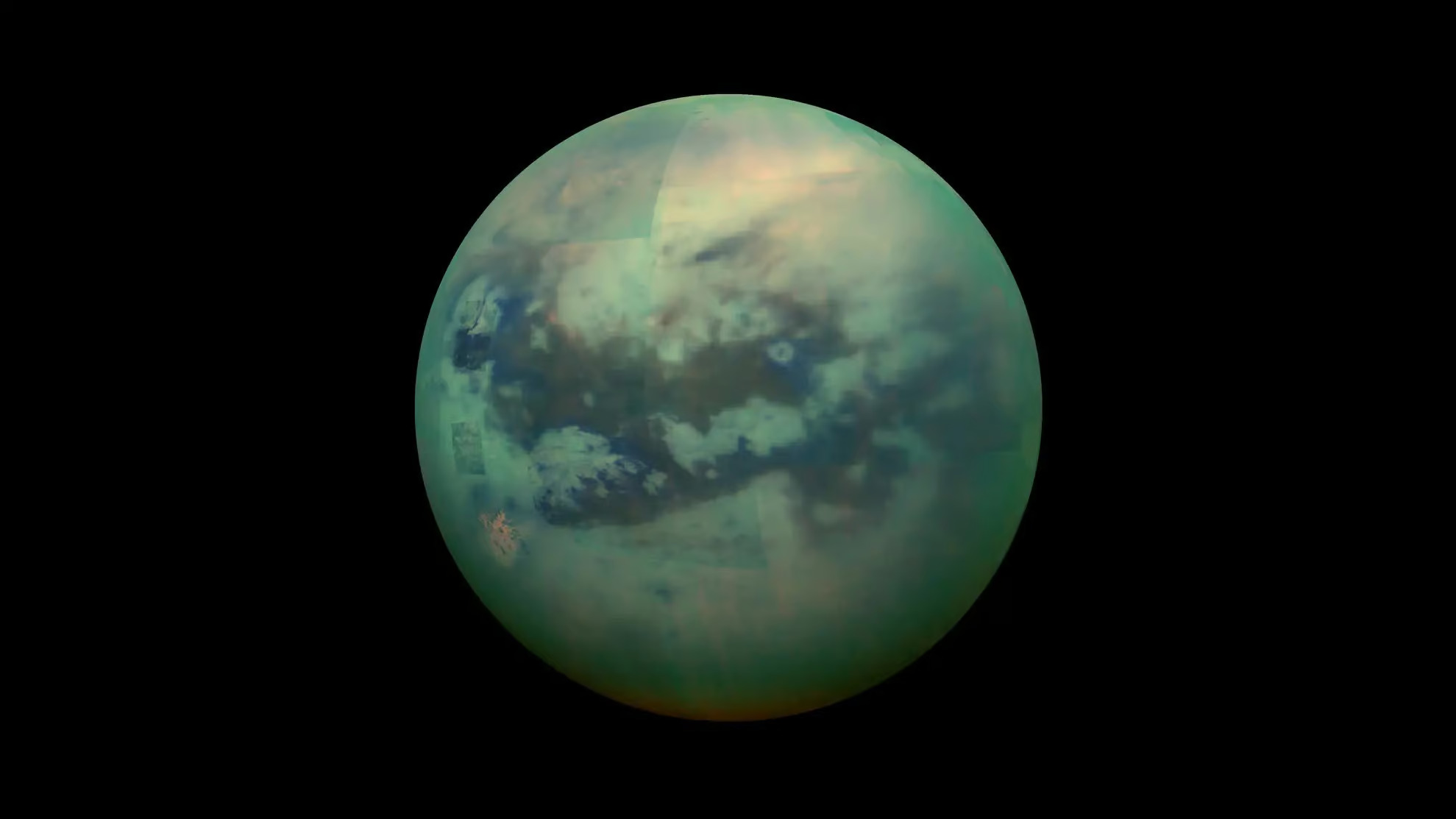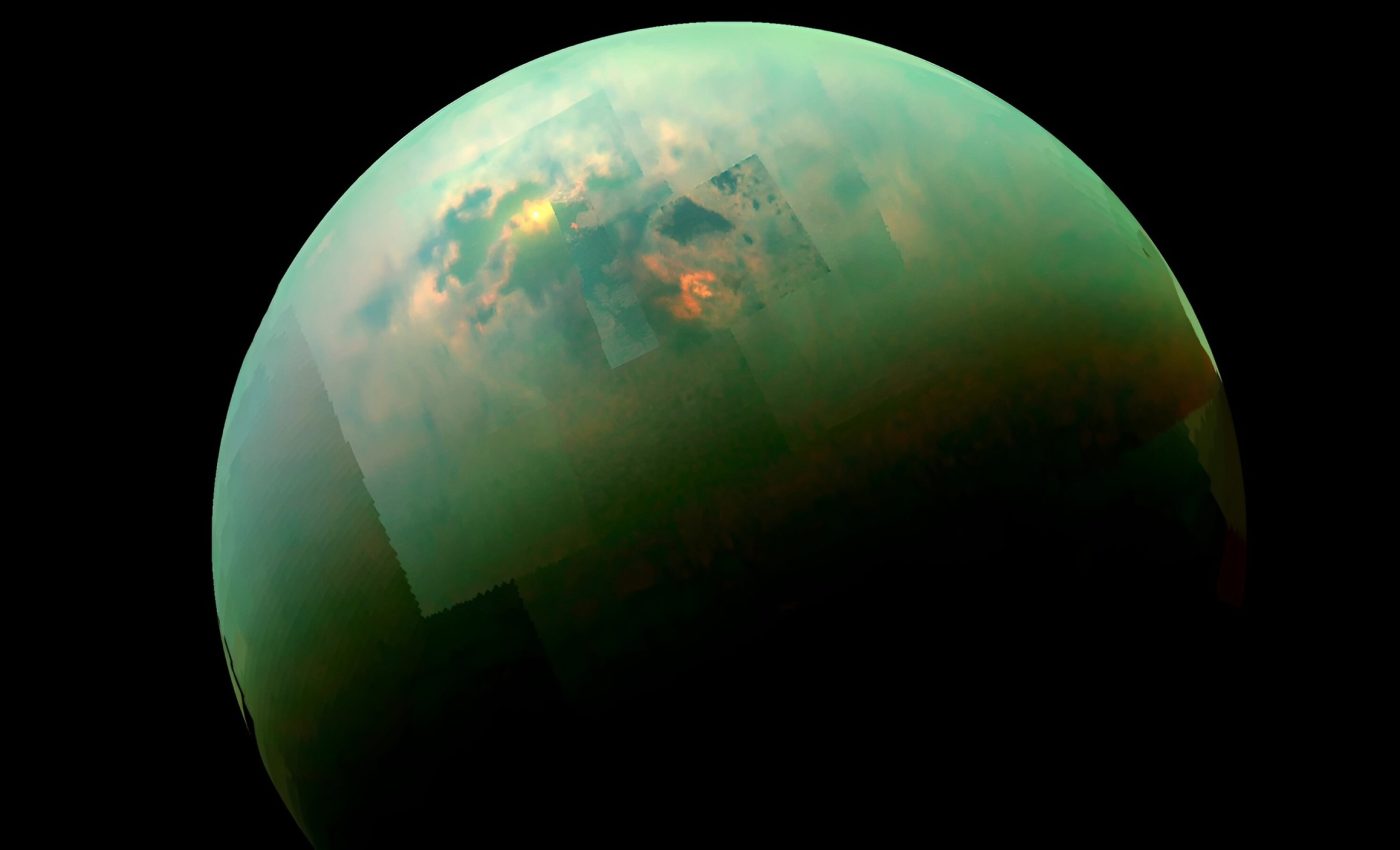Saturn’s moon Titan has intrigued scientists for years due to its rivers, lakes, and seas of liquid methane and ethane, along with a subsurface ocean of liquid water. These features, combined with a rich presence of organic compounds, make Titan a strong candidate in the search for alien life. A recent study renews interest in this possibility but brings a more cautious perspective. While life could theoretically exist on Titan, researchers now believe its abundance might be far more limited than once thought.
Titan’s Organic Molecules and Fermentation as Potential Sources for Alien Life
Unlike other icy moons, Titan stands out due to its vast stores of organic molecules formed by complex chemical reactions in its thick atmosphere. Data from NASA’s Cassini mission and the Huygens probe revealed these reactions could create potential life-building compounds.
However, while these organics accumulate on the surface, the study highlights that not all of them may be viable as food sources. Plus, the exchange between the surface and the hidden ocean below is quite limited, reducing the availability of essential materials for life.

The research team used bioenergetic modeling to explore potential life-supporting chemical reactions. Their findings pointed toward fermentation — a basic metabolic process that doesn’t require oxygen — as the most plausible energy source for microbes on Titan. Fermentation is known to have appeared early in Earth’s history, making it a logical candidate for simple alien life in oxygen-poor environments like Titan’s.
Sparse Microbial Life on Titan Hints at Hidden Life in Vast Ocean
To further test this idea, researchers used glycine — the simplest amino acid and one commonly found across the solar system — as a potential food source. Their simulations showed that Titan’s ocean might support microbial life through glycine fermentation. However, the actual amount of glycine and other organics reaching the ocean is likely very low, potentially only enough to support a tiny biosphere weighing a few kilograms — about as much as a small dog.
Ultimately, the study suggests that while Titan could host microbial life, any such biosphere would be extremely sparse — possibly averaging fewer than one microbe per liter of ocean water. This makes detecting life a daunting challenge for future missions, such as NASA’s upcoming Dragonfly rotorcraft, set to launch in 2027. Despite its rich chemistry, Titan may be home to life that is as elusive as it is intriguing.


